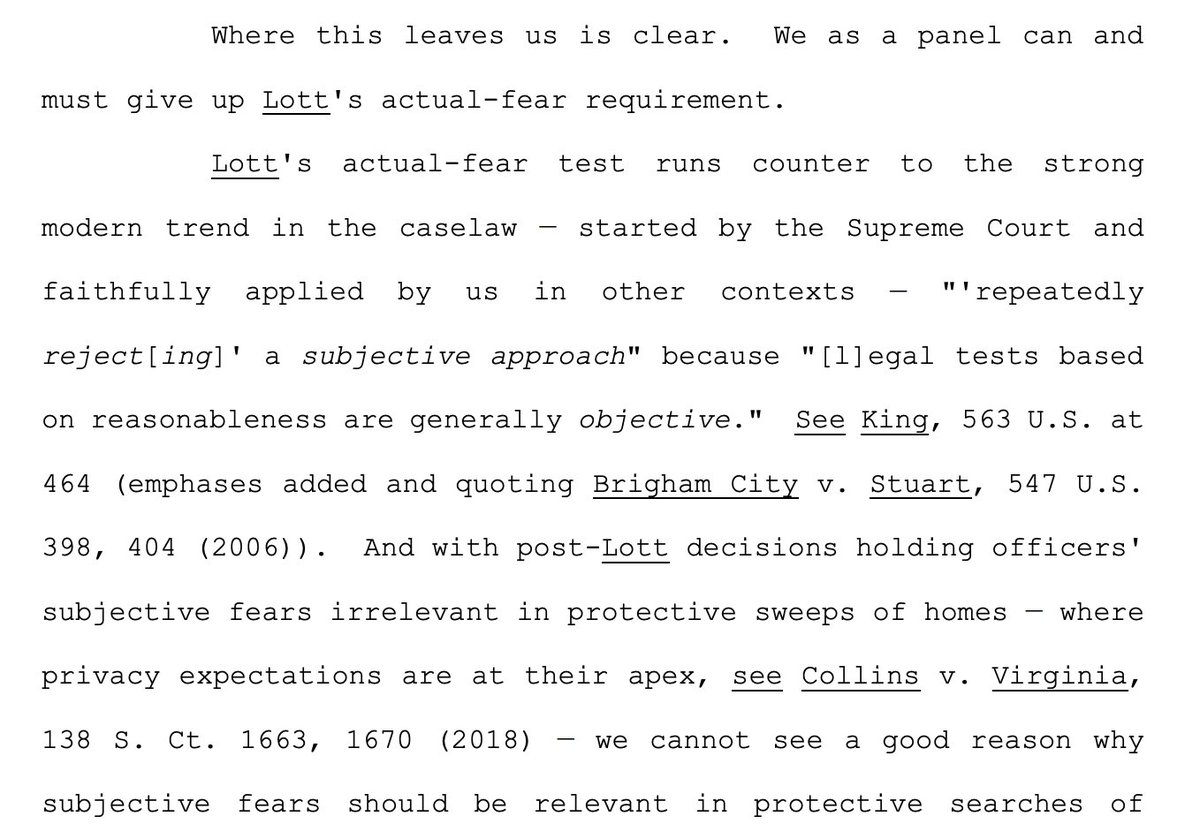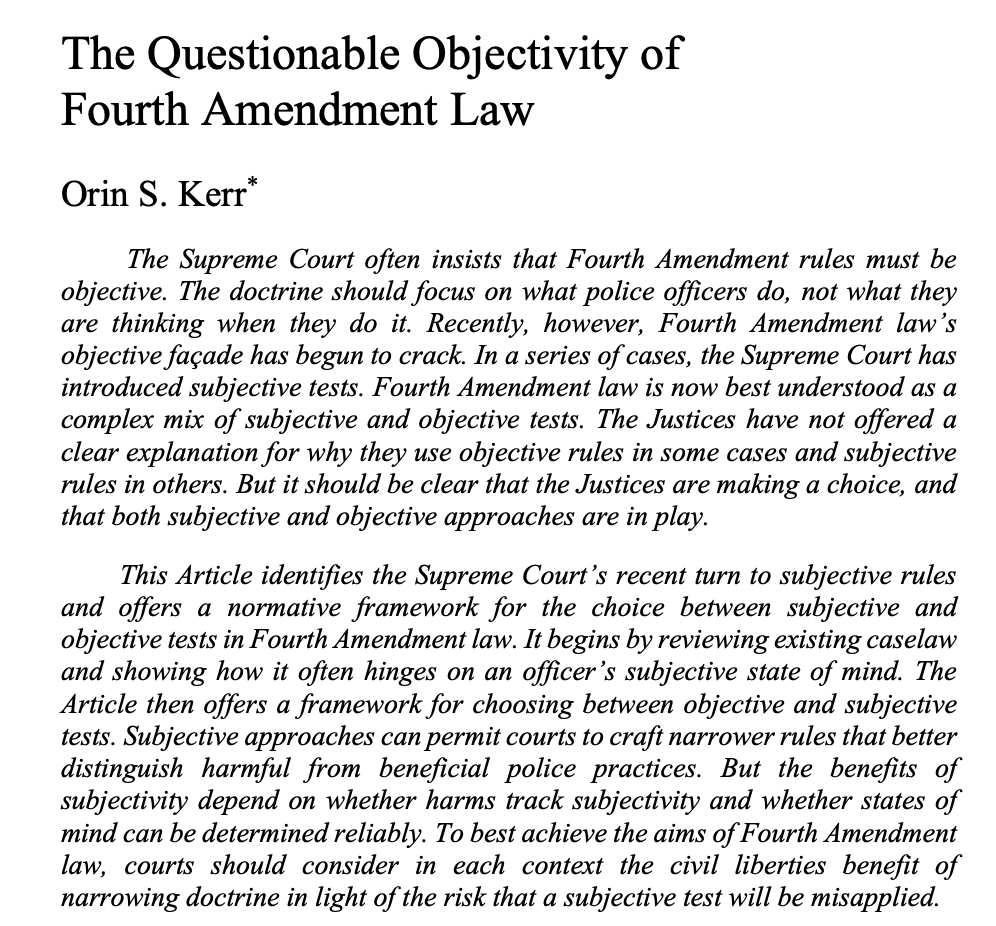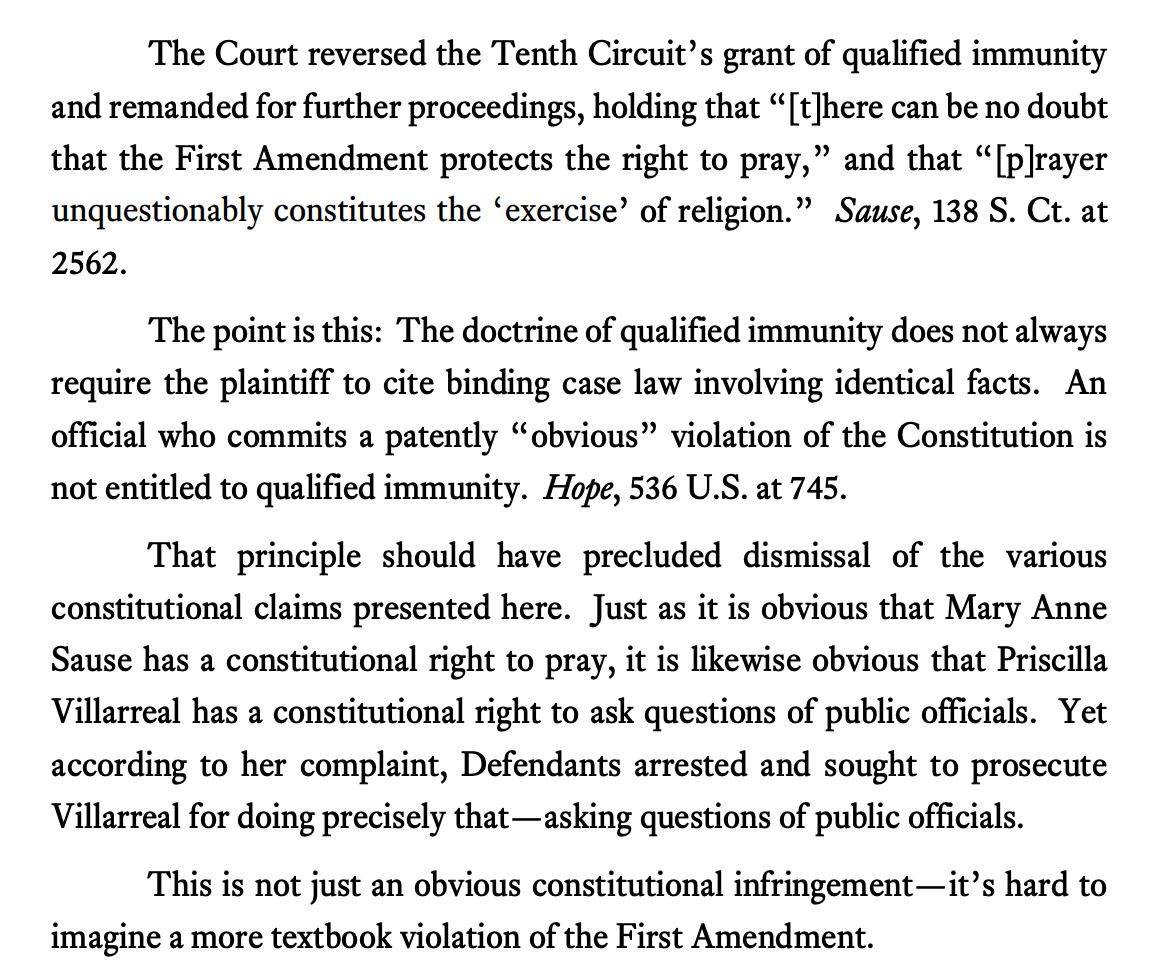
1st Circuit panel overturns 1989 circuit precedent that had held a protective sweep requires evidence that the officers were actually motivated by public safety. Intervening SCT caselaw makes clear 4A is objective, not subjective.
Thread.
media.ca1.uscourts.gov/pdf.opinions/2… #N
Thread.
media.ca1.uscourts.gov/pdf.opinions/2… #N

Although 3-judge panels normally can't overturn 3-judge panel precedents, CA1 caselaw allows it when intervening relevant but not controlling authority suggests the old panel would have come out differently. 

On the merits, I disagree with the panel's view that modern 4A rules are generally objective w/r/t police conduct. As I explained in this recent article, there are a lot of subjective rules, many of them very recent. texaslawreview.org/wp-content/upl… 

With that said, it seems right to me that in a protective sweep case (here, involving a car), the question should be objective, not subjective; the 1989 panel reasoning that having reasonable suspicion requires actual suspicion seems just wrong.
• • •
Missing some Tweet in this thread? You can try to
force a refresh









